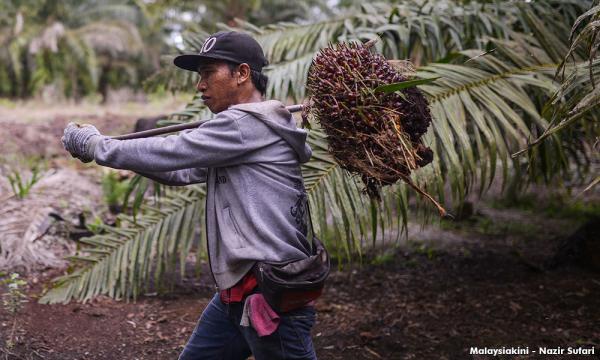Following accusations of unethical labour practices including forced labour and trafficking, FGV Holdings Bhd said it has undertaken to improve worker benefits and freeze recruitment by external contractors.
This comes after the Roundtable on Sustainable Palm Oil (RSPO) cited the palm oil giant for unlawful recruitment of workers, discriminatory treatment of foreign workers, forced labour and practices linked to trafficking of persons, among others.
In a statement, the company assured that it was taking immediate measures to address the claims made by the RSPO, one of the world's largest certification bodies for the palm oil industry.
"FGV has frozen all new recruitment of workers from external contractors across its operations with immediate effect.
"This freeze will only be lifted when the company is satisfied beyond any doubt that contractors are strictly adhering to all FGV’s internal policies, guidelines and standard operating procedures.
"To avoid displacing existing workers who are already contracted to FGV through third parties, the company pledges to negotiate with relevant stakeholders to directly employ these workers where possible," the company stated in a release dated yesterday.
It added that these negotiations would involve the workers' current employers and the Malaysian government.
FGV said: “It would be in the best interest of our foreign contract workers if they are able to come under our payroll. However, FGV is cognisant of the legal and procedural hurdles but we will nevertheless endeavour to do our best."
Aside from freezing the intake of workers recruited from contractors, FGV also said it has begun investigations into the RSPO claim the FGV has outsourced its foreign workers to external contractors.
The certification body had pointed out that this practice, aside from contravening Malaysian laws, could be considered to be furthering acts of human trafficking.
"As has been rightly stated by the RSPO, such practices are illegal and FGV takes a very serious view of this finding.

"The RSPO is an important stakeholder and FGV is committed to full compliance with all its principles and criteria," FGV chairperson and interim chief executive officer Azhar Abdul Hamid said.
Reviewing worker training programme
FGV added that it would also revise, with immediate effect, plantation workers' benefits and will absorb the costs of basic necessities including food supplies, given to workers.
On the RSPO concern of improper negotiation of worker contracts and terms of employment, FGV stated it will be reviewing and revising all communication materials and worker training programmes "especially with regards to terms of employment, whistle-blower protection and health and safety procedures".
An independent third party will be engaged to train workers on its human rights policy, it added.
In its statement, FGV stated that the RM300 million project to improve the housing facilities of its workers, commissioned in 2017, was still ongoing and will be "expedited".
It also said it had established a Transformation Office in 2018 which, among others, will allow workers to "verify their compensations accurately".
The RSPO investigations stemmed from a complaint filed by The Wall Street Journal (WSJ) in 2015 pursuant to an investigative report it published that same year on alleged abuses at Malaysian oil palm estates.
In a letter sent to FGV, the RSPO secretariat also instructed FGV to suspend the certificate of one of its palm oil factories in Negeri Sembilan and its supply bases.
It said the suspension should only be lifted after the company undertakes a legal and operational audit review of its current recruitment practices as well as a submission and subsequent implementation of an action plan.
The RSPO threatened further sanctions should FGV fail to comply with its directives within the stipulated timeframe.


